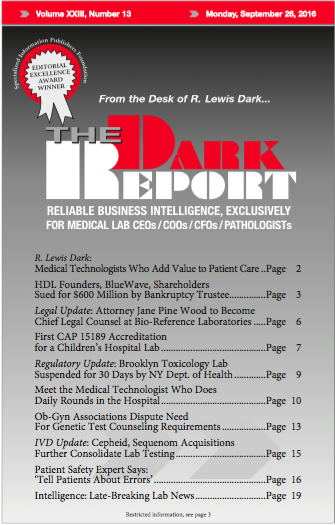CEO SUMMARY: It’s now official. St. Jude Children’s Research Hospital is the first children’s hospital to earn accreditation to ISO 15189 under the College of American Pathologists. What is more interesting, however, is how lab leadership used the quality management system of ISO 15189 to help lab staff to raise the quality of lab services. …
First CAP 15189 Accreditation for a Children’s Hospital Lab Read More »
To access this post, you must purchase The Dark Report.


